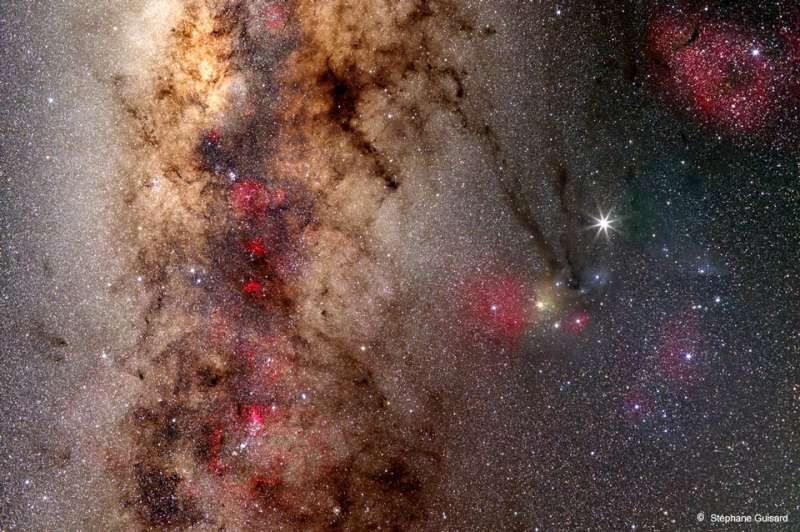
|
Credit & Copyright: St»phane Guisard,
TWAN
Explanation:
If Scorpius looked this good to the unaided eye, humans might remember it better.
Scorpius
more typically appears as a few bright stars in a well-known but rarely pointed out
zodiacal
constellation.
To get a spectacular image like
this, though, one needs a good
camera, color
filters,
and a
digital image processor.
To bring out detail, the featured image not only involved long duration
exposures taken in several colors, but one exposure in a
very specific red color emitted by
hydrogen.
The resulting image shows many breathtaking features.
Vertically across the image left is part of the
plane of our
Milky Way Galaxy.
Visible there are vast clouds of bright stars and long filaments of dark
dust.
Jutting out diagonally from the
Milky Way in the image center are
dark dust bands known as the
Dark River.
This river connects to several bright stars on the right that are part of
Scorpius' head and claws,
and include the bright star
Antares.
Above and right of Antares is an even brighter planet: Jupiter.
Numerous red
emission nebulas and blue
reflection nebulas
are visible throughout the image.
Scorpius
appears prominently in southern skies after sunset during the middle of the year.
|
January February March April May June July August September October November December |
| ||||||||||||||||||||||||||||||||||||||||||||||||
NASA Web Site Statements, Warnings, and Disclaimers
NASA Official: Jay Norris. Specific rights apply.
A service of: LHEA at NASA / GSFC
& Michigan Tech. U.
Based on Astronomy Picture
Of the Day
Publications with keywords: Scorpius
Publications with words: Scorpius
See also:
